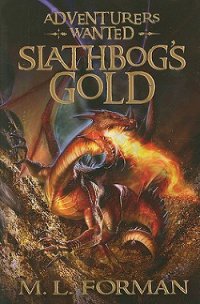White Fang - London Jack (читаемые книги читать онлайн бесплатно полные txt) 📗
So he became the enemy of his kind, domesticated wolves that they were, softened by the fires of man, weakened in the sheltering shadow of man's strength. White Fang was bitter and implacable. The clay of him was so moulded. He declared a vendetta against all dogs. And so terribly did he live this vendetta that Grey Beaver, fierce savage himself, could not but marvel at White Fang's ferocity. Never, he swore, had there been the like of this animal; and the Indians in strange villages swore likewise when they considered the tale of his killings amongst their dogs.
When White Fang was nearly five years old, Grey Beaver took him on another great journey, and long remembered was the havoc he worked amongst the dogs of the many villages along the Mackenzie, across the Rockies, and down the Porcupine to the Yukon. He revelled in the vengeance he wreaked upon his kind. They were ordinary, unsuspecting dogs. They were not prepared for his swiftness and directness, for his attack without warning. They did not know him for what he was, a lightning-flash of slaughter. They bristled up to him, stiff-legged and challenging, while he, wasting no time on elaborate preliminaries, snapping into action like a steel spring, was at their throats and destroying them before they knew what was happening and while they were yet in the throes of surprise.
He became an adept at fighting. He economised. He never wasted his strength, never tussled. He was in too quickly for that, and, if he missed, was out again too quickly. The dislike of the wolf for close quarters was his to an unusual degree. He could not endure a prolonged contact with another body. It smacked of danger. It made him frantic. He must be away, free, on his own legs, touching no living thing. It was the Wild still clinging to him, asserting itself through him. This feeling had been accentuated by the Ishmaelite life he had led from his puppyhood. Danger lurked in contacts. It was the trap, ever the trap, the fear of it lurking deep in the life of him, woven into the fibre of him
In consequence, the strange dogs he encountered had no chance against him. He eluded their fangs. He got them, or got away, himself untouched in either event. In the natural course of things there were exceptions to this. There were times when several dogs, pitching on to him, punished him before he could get away; and there were times when a single dog scored deeply on him. But these were accidents. In the main, so efficient a fighter had he become, he went his way unscathed.
Another advantage he possessed was that of correctly judging time and distance. Not that he did this consciously, however. He did not calculate such things. It was all automatic. His eyes saw correctly, and the nerves carried the vision correctly to his brain. The parts of him were better adjusted than those of the average dog. They worked together more smoothly and steadily. His was a better, far better, nervous, mental, and muscular co– ordination. When his eyes conveyed to his brain the moving image of an action, his brain without conscious effort, knew the space that limited that action and the time required for its completion. Thus, he could avoid the leap of another dog, or the drive of its fangs, and at the same moment could seize the infinitesimal fraction of time in which to deliver his own attack. Body and brain, his was a more perfected mechanism. Not that he was to be praised for it. Nature had been more generous to him than to the average animal, that was all.
It was in the summer that White Fang arrived at Fort Yukon. Grey Beaver had crossed the great watershed between Mackenzie and the Yukon in the late winter, and spent the spring in hunting among the western outlying spurs of the Rockies. Then, after the break-up of the ice on the Porcupine, he had built a canoe and paddled down that stream to where it effected its junction with the Yukon just under the Artic circle. Here stood the old Hudson's Bay Company fort; and here were many Indians, much food, and unprecedented excitement. It was the summer of 1898, and thousands of gold– hunters were going up the Yukon to Dawson and the Klondike. Still hundreds of miles from their goal, nevertheless many of them had been on the way for a year, and the least any of them had travelled to get that far was five thousand miles, while some had come from the other side of the world.
Here Grey Beaver stopped. A whisper of the gold-rush had reached his ears, and he had come with several bales of furs, and another of gut-sewn mittens and moccasins. He would not have ventured so long a trip had he not expected generous profits. But what he had expected was nothing to what he realised. His wildest dreams had not exceeded a hundred per cent. profit; he made a thousand per cent. And like a true Indian, he settled down to trade carefully and slowly, even if it took all summer and the rest of the winter to dispose of his goods.
It was at Fort Yukon that White Fang saw his first white men. As compared with the Indians he had known, they were to him another race of beings, a race of superior gods. They impressed him as possessing superior power, and it is on power that godhead rests. White Fang did not reason it out, did not in his mind make the sharp generalisation that the white gods were more powerful. It was a feeling, nothing more, and yet none the less potent. As, in his puppyhood, the looming bulks of the tepees, man-reared, had affected him as manifestations of power, so was he affected now by the houses and the huge fort all of massive logs. Here was power. Those white gods were strong. They possessed greater mastery over matter than the gods he had known, most powerful among which was Grey Beaver. And yet Grey Beaver was as a child-god among these white-skinned ones.
To be sure, White Fang only felt these things. He was not conscious of them. Yet it is upon feeling, more often than thinking, that animals act; and every act White Fang now performed was based upon the feeling that the white men were the superior gods. In the first place he was very suspicious of them. There was no telling what unknown terrors were theirs, what unknown hurts they could administer. He was curious to observe them, fearful of being noticed by them. For the first few hours he was content with slinking around and watching them from a safe distance. Then he saw that no harm befell the dogs that were near to them, and he came in closer.
In turn he was an object of great curiosity to them. His wolfish appearance caught their eyes at once, and they pointed him out to one another. This act of pointing put White Fang on his guard, and when they tried to approach him he showed his teeth and backed away. Not one succeeded in laying a hand on him, and it was well that they did not.
White Fang soon learned that very few of these gods-not more than a dozen-lived at this place. Every two or three days a steamer (another and colossal manifestation of power) came into the bank and stopped for several hours. The white men came from off these steamers and went away on them again. There seemed untold numbers of these white men. In the first day or so, he saw more of them than he had seen Indians in all his life; and as the days went by they continued to come up the river, stop, and then go on up the river out of sight.
But if the white gods were all-powerful, their dogs did not amount to much. This White Fang quickly discovered by mixing with those that came ashore with their masters. They were irregular shapes and sizes. Some were short-legged-too short; others were long– legged-too long. They had hair instead of fur, and a few had very little hair at that. And none of them knew how to fight.
As an enemy of his kind, it was in White Fang's province to fight with them. This he did, and he quickly achieved for them a mighty contempt. They were soft and helpless, made much noise, and floundered around clumsily trying to accomplish by main strength what he accomplished by dexterity and cunning. They rushed bellowing at him. He sprang to the side. They did not know what had become of him; and in that moment he struck them on the shoulder, rolling them off their feet and delivering his stroke at the throat.



